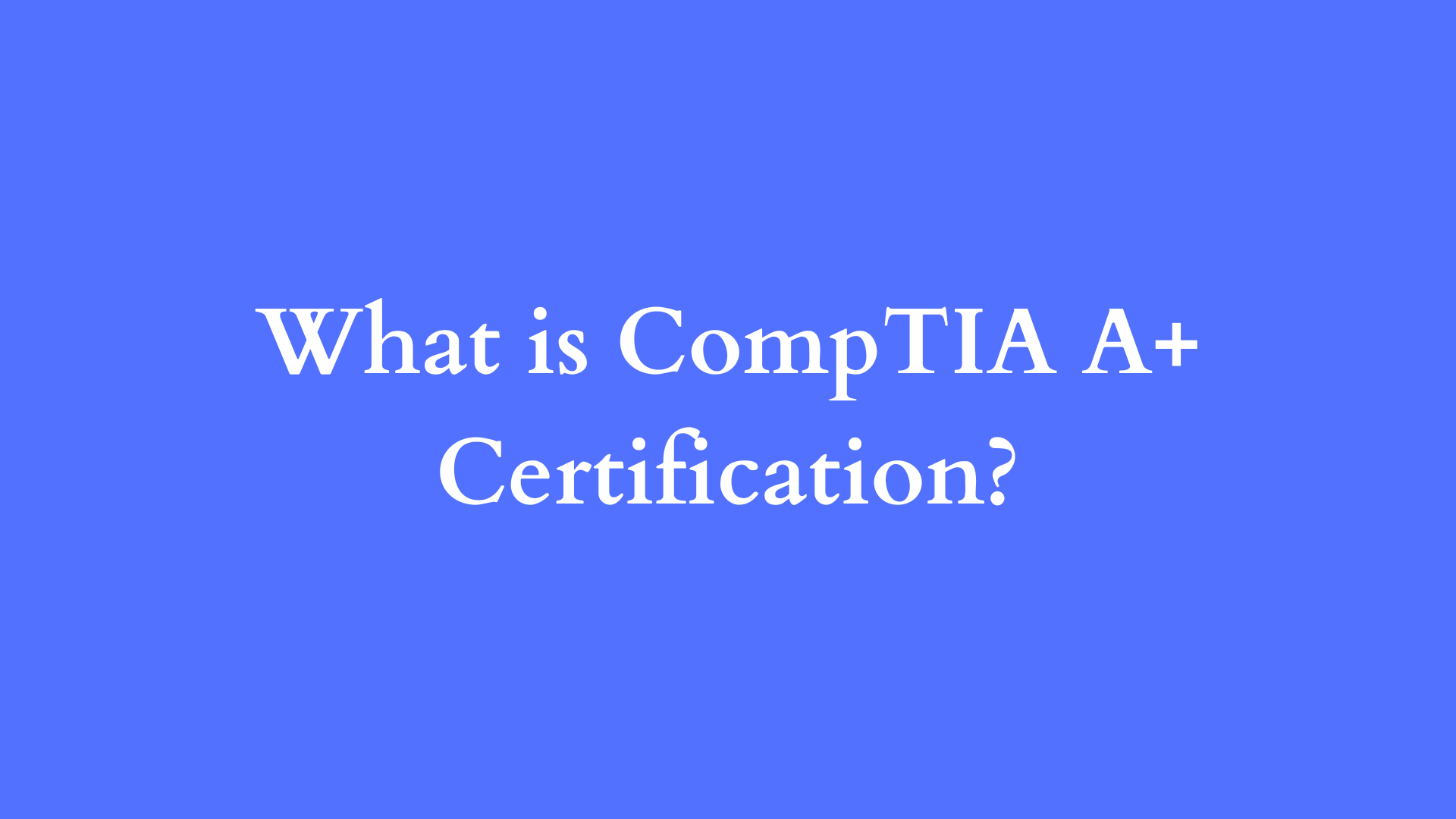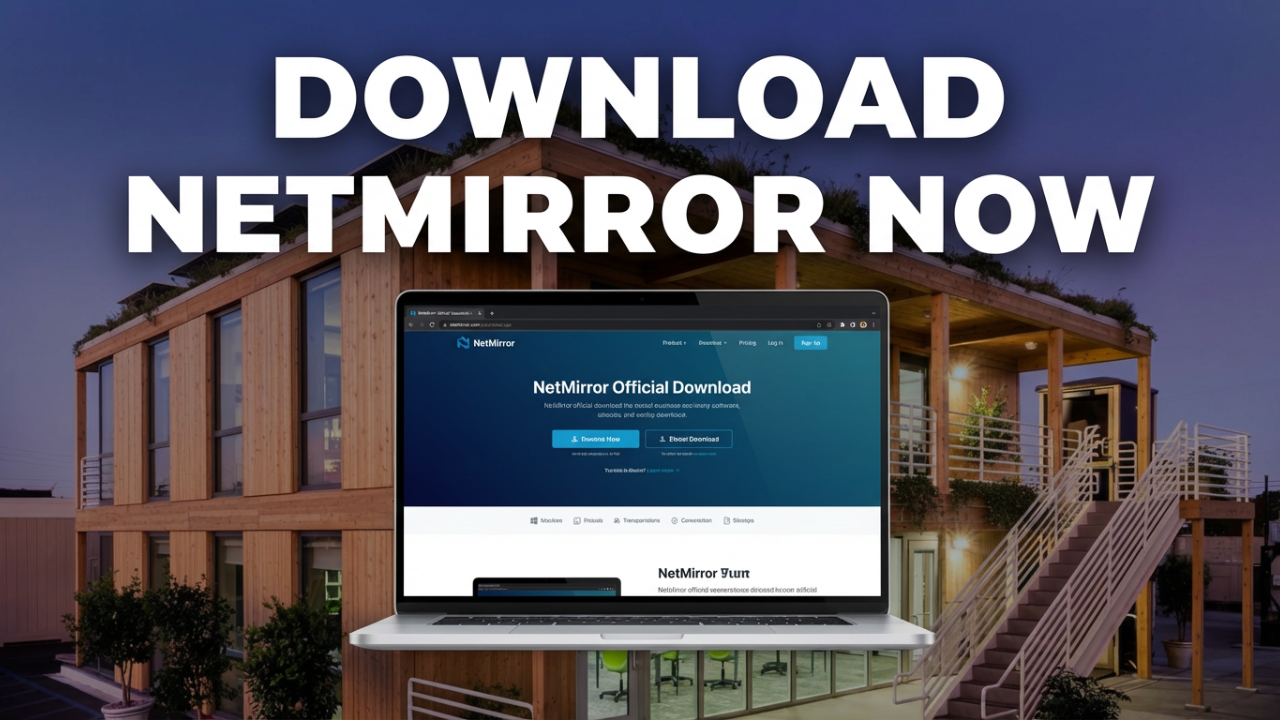Understanding CompTIA A+ Certification: Your Gateway to a Career in IT
In the ever-evolving landscape of information technology, securing a foothold can often seem daunting, especially for those just starting out. Aspiring IT professionals frequently seek credentials that can validate their knowledge and skills in a competitive job market. One such certification that has gained widespread recognition and respect is the CompTIA A+ certification. This blog post delves into what the CompTIA A+ certification is, its significance in the IT industry, who should pursue it, the exam structure, and tips for preparation.

What is CompTIA A+ Certification?
The CompTIA A+ certification is a vendor-neutral certification designed to assess an individual’s foundational IT skills and knowledge. It serves as an acknowledgment of competency in various fundamental aspects of IT support and operations, making it an ideal starting point for anyone aspiring to build a career in the tech field.
Launched in 1993, CompTIA A+ has evolved over the years to keep pace with technological advancements and changing industry needs. As of the latest iteration, the certification covers a broad range of topics, including hardware, networking, operating systems, security, troubleshooting, and mobile devices.
One of the key features of the CompTIA A+ certification is its credibility. It is widely recognized by employers across diverse sectors, making it an essential credential for entry-level positions in IT support, technical support, and operational roles. According to CompTIA, the certification is one of the most demanded IT certifications in the job market today.
Importance of CompTIA A+ Certification
Validation of Skills
CompTIA A+ certification acts as a benchmark for employers when evaluating prospective employees. It provides a level of assurance that the certified individual possesses the necessary skills and knowledge to perform essential IT tasks effectively. This validation is particularly crucial for entry-level positions, where hands-on experience may be limited.
Career Advancement
For those already working in IT, obtaining the CompTIA A+ certification can pave the way for career advancement. Many organizations view certification as a commitment to professional development and a proactive approach to keeping skills current. IT professionals who hold this certification may find greater opportunities for promotion and specialization within their field.
Enhanced Job Opportunities
With the tech industry constantly expanding, the demand for skilled IT professionals has never been higher. According to the U.S. Bureau of Labor Statistics, employment for computer support specialists is projected to grow by 8% from 2020 to 2030. Holding a CompTIA A+ certification can significantly enhance your job prospects and make you a more attractive candidate to employers.
Gateway to Further Certifications
The CompTIA A+ certification serves as a stepping stone to more advanced certifications. Once you’ve mastered the foundational skills, you might consider pursuing additional certifications such as CompTIA Network+, CompTIA Security+, or vendor-specific certifications offered by companies like Cisco, Microsoft, and Amazon. These advanced certifications can lead to more specialized roles with higher earning potential.
Who Should Pursue CompTIA A+ Certification?
The CompTIA A+ certification is ideal for various individuals, including but not limited to:
- Entry-Level IT Professionals: If you’re looking to launch a career in IT, the CompTIA A+ certification is a perfect starting point. It equips you with essential skills and knowledge that are crucial for any IT role.
- Career Changers: Individuals transitioning from other fields into IT can benefit from the structured learning path offered by the CompTIA A+ certification. It provides a strong foundation upon which to build further expertise.
- High School Students or Recent Graduates: Students looking to enter the workforce with viable skills can take advantage of the A+ certification to improve their employability.
- IT Support Staff: Those currently in IT support roles can use the certification to formalize and validate their existing knowledge and competencies, setting themselves up for increased responsibilities.
Exam Structure
The CompTIA A+ certification is composed of two separate exams, each focusing on different areas of IT expertise. As of the latest update (version 220-1101 and 220-1102), here’s a breakdown of what you can expect for each exam:
1. Core 1 (220-1101)
- Mobile Devices: Covers managing, troubleshooting, and repairing mobile devices.
- Networking Technology: Involves foundational networking concepts, including internet connectivity and basics of networking hardware.
- Hardware: Focuses on installation, maintenance, and troubleshooting of hardware components.
- Virtualization and Cloud Computing: Introduces the basics of virtualization and offers insights on cloud computing.
- Hardware and Networking Troubleshooting: Guides candidates on how to diagnose and resolve hardware and networking issues.
2. Core 2 (220-1102)
- Operating Systems: Tests knowledge of installing and configuring various operating systems, including Windows and Linux.
- Security: Covers key concepts of IT security procedures and best practices.
- Software Troubleshooting: Examines the ability to troubleshoot application-related issues, both on PCs and mobile devices.
- Operational Procedures: Involves best practices and procedures for efficient IT operations, including change management and disaster recovery.
Each exam consists of a maximum of 90 questions and is a mix of multiple-choice questions and performance-based items, which simulate real-world scenarios requiring problem-solving skills.
Preparing for the CompTIA A+ Certification
Successfully obtaining the CompTIA A+ certification requires systematic preparation. Here are some tips to help you gear up for the exams:
1. Utilize Official Study Materials
CompTIA offers a wealth of resources, including study guides, practice exams, and online training courses. Consider investing in official CompTIA A+ certification study books, which can provide comprehensive coverage of the exam objectives.
2. Hands-On Practice
Theoretical knowledge is essential, but hands-on experience is equally important. Set up your own lab at home or access virtual labs that allow you to practice troubleshooting and diagnosing issues in different operating systems and hardware configurations.
3. Join Study Groups
Consider participating in online forums and study groups. Collaborating with peers preparing for the exam can provide different perspectives and enhance your understanding of challenging topics.
4. Take Practice Exams
Testing your knowledge through practice exams can help you gauge your readiness for the actual certification exams. Familiarizing yourself with the format and types of questions will build your confidence and improve your performance.
5. Create a Study Plan
Establish a structured study plan that outlines the topics you need to cover and the timeline for completing them. Break down your study sessions into manageable chunks to avoid burnout.
Conclusion
In summary, the CompTIA A+ certification is a valuable asset for anyone seeking to enter or advance in the IT industry. It validates your foundational skills and knowledge, enhances employability, and opens doors to various career opportunities. With a systematic approach to studying and practical experience, obtaining this certification can be a significant stepping stone towards a successful IT career.
As technology continues to advance and reshape the workplace, staying knowledgeable and certified is essential for anyone looking to thrive in this dynamic field. Whether you’re an aspiring IT professional or someone looking to formalize your skills, the CompTIA A+ certification may well be your key to unlocking a world of opportunities in the exciting realm of information technology.






